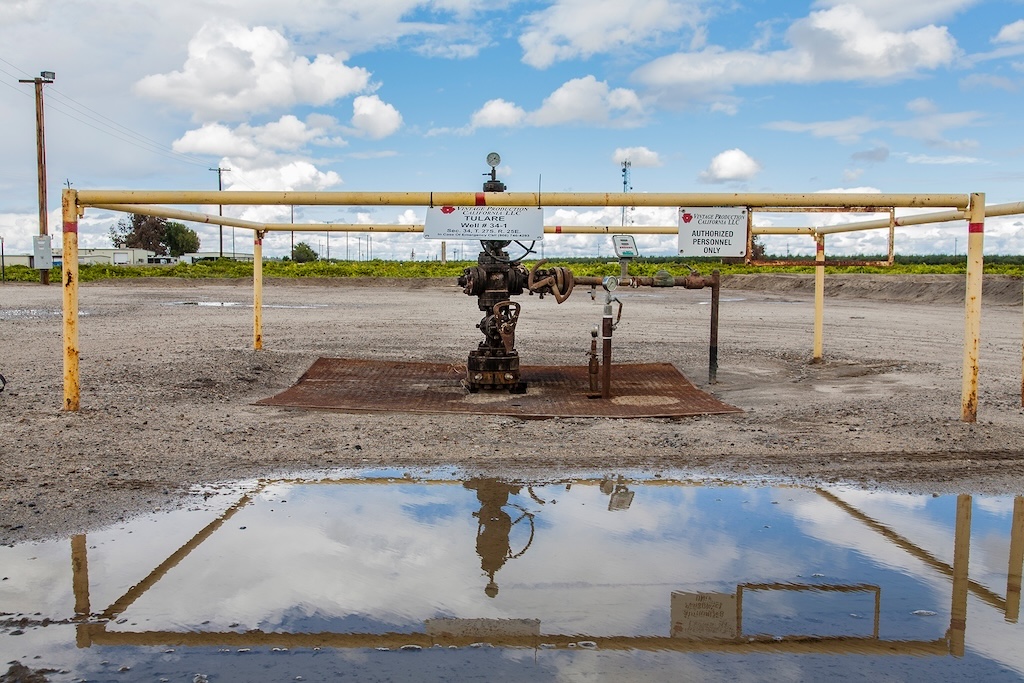Today, a federal judge tossed out federal permits for the Dakota Access pipeline (DAPL), built to carry over half a million barrels of Bakken crude oil a day from North Dakota, and ordered the U.S. Army Corps of Engineers to conduct a full environmental review of the pipeline project.
U.S. District Judge James E. Boasberg indicated that he would next consider whether to shut down the current flows of oil through DAPL while the environmental review is in process, ordering both sides to submit briefs on the question.
Representatives of the Standing Rock Sioux Tribe, plaintiffs in the lawsuit, welcomed today’s ruling.
“After years of commitment to defending our water and earth, we welcome this news of a significant legal win,” said Standing Rock Sioux Tribe Chairman Mike Faith. “It’s humbling to see how actions we took four years ago to defend our ancestral homeland continue to inspire national conversations about how our choices ultimately affect this planet. Perhaps in the wake of this court ruling the federal government will begin to catch on, too, starting by actually listening to us when we voice our concerns.”
The Dakota Access pipeline has been in service for nearly three years, following battles over the pipeline’s environmental impacts that raged for years.
Water protectors at a fire blocking a road during Standing Rock protests in 2016. Credit: Avery White via Oceti Sakowin Camp, CC BY–NC 2.0
“The many commenters in this case pointed to serious gaps in crucial parts of the Corps’ analysis,” Judge Boasberg wrote in today’s order, “to name a few, that the pipeline’s leak-detection system was unlikely to work, that it was not designed to catch slow spills, that the operator’s serious history of incidents had not been taken into account, and that the worst-case scenario used by the Corps was potentially only a fraction of what a realistic figure would be — and the Corps was not able to fill any of them.”
Judge Boasberg cited evidence submitted regarding the safety record of the pipeline’s operator, Energy Transfer (formerly known as Energy Transfer Partners, which merged with Sunoco). “In this case, the operator’s history did not inspire confidence,” the order says. “’[Pipeline and Hazardous Materials Safety Administration] data shows Sunoco has experienced 276 incidents resulting in over $53 million in property damage from 2006-2016,’ which one expert described as ‘one of the lower performing safety records of any operator in the industry for spills and releases.’”
“This validates everything the Tribe has been saying all along about the risk of oil spills to the people of Standing Rock,” Earthjustice attorney Jan Hasselman said in a statement. “We will continue to see this through until DAPL has finally been shut down.”
Because the pipeline’s effects were “likely to be highly controversial,” the judicial opinion concludes, federal law — specifically the National Environmental Policy Act (NEPA) — requires a more thorough environmental review than was done.
“In projects of this scope, it is not difficult for an opponent to find fault with many conclusions made by an operator and relied on by the agency,” Judge Boasberg wrote. “But here, there is considerably more than a few isolated comments raising insubstantial concerns.”
This is why we never stop fighting. #StandingRock Sioux Tribe Prevails as Federal Judge Strikes Down #DAPL Permits. https://t.co/UaDAIvFNnP
— Abbie Dillen (@AbbieDillen) March 25, 2020
Environmental groups also highlighted efforts by the Trump administration to roll back NEPA, one of the country’s cornerstone environmental laws.
“NEPA, the only law that allows for local public input on infrastructure projects, is currently under attack by both the Trump administration and some members of Congress,” the National Resources Defense Council said in a post on today’s ruling. “DAPL foreshadows a future where dangerous infrastructure could be built anywhere and at any time without local consent. But just as DAPL serves as an ominous symbol for environmental destruction and corporate greed, the spirit of NEPA and the Standing Rock protesters — now plaintiffs against the federal government — serve as a beacon of hope for the environmental movement.”
Energy Transfer spokesperson Lisa C. Coleman declined to comment on the ruling. “It is company policy not to comment on current or pending litigation matters,” she said in an email.
DAPL was pressed into service after President Trump took office, after the new administration reversed actions by the outgoing Obama administration, which had concluded that more environmental review was necessary following a prolonged campaign by grassroots water protectors.
Donald Trump signs orders to green-light the Keystone XL and Dakota Access pipelines on January 24, 2017. Credit: White House, public domain
Water protectors at Standing Rock faced forcible evictions, and hundreds were injured, with 26 reportedly hospitalized, in one November 2016 “mass casualty incident” where police used water cannons, tear gas, rubber bullets, and other weapons.
Today’s ruling drew a statement from Representative Raúl M. Grijalva (D-AZ), chairman of the House Natural Resources Committee, who told The New York Times that the ruling showed that the Trump administration had been so eager to move fossil fuel projects forward that it had failed to heed federal law. “Industry needs to learn that if you throw in with the Trump administration, you will bear the costs of its reckless incompetence,” he told The Times.
Energy Transfer is currently building another highly controversial fossil fuel pipeline, its Mariner East project, which spans the southern tier of Pennsylvania and which has been plagued by sinkholes, spills, and other environmental and safety violations.
Earlier this month, the Pittsburgh Post-Gazette revealed that a pipeline worker on that project is scheduled to plead guilty to one felony for forging weld documents on the Mariner East 2 pipeline, and that an investigation into the project involving the Federal Bureau of Investigation and the Pennsylvania Department of Transportation’s Office of Inspector General remains ongoing.
A February settlement separately requires the company to conduct a so-called “remaining life” study on Mariner East 1, another part of the Mariner East pipelines project. Construction on Mariner East had been halted by Pennsylvania officials, as part of the state’s effort to curtail the spread of the COVID-19 pandemic, though Energy Transfer had applied for waivers to continue some work, which a spokesperson told WHYY would allow the company to “stabilize and secure” construction sites.
Main image: Standing Rock on December 4, 2016. Credit: Dark Sevier, CC BY–NC 2.0
Subscribe to our newsletter
Stay up to date with DeSmog news and alerts








